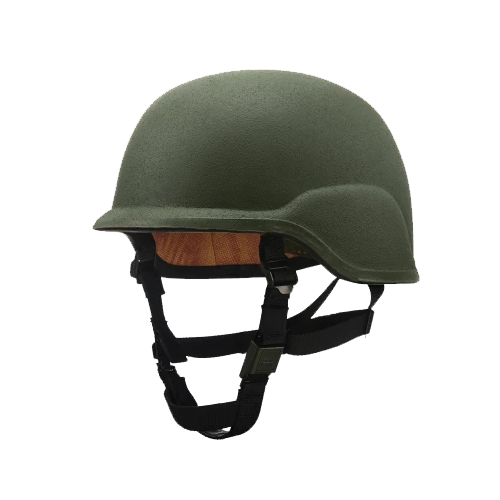in the face of increasingly complex safety challenges, the importance of personal protective equipment has become increasingly prominent. As an important part of personal protective equipment, ballistic helmets play a key role in protecting the head from bullets and blunt force injuries

Hifa Stonexp offer a wide range of gear suitable for various needs, from law enforcement to personal safety and outdoor activities. Bulletproof helmets and anti-riot gear would be essential for law enforcement professionals dealing with potentially dangerous situations, while bulletproof suits could provide additional protection in high-risk environments. And for those who enjoy outdoor activities like hunting or camping, their camouflage gear would likely come in handy for blending into natural surroundings. It’s great to see companies providing reliable and high-quality gear to support safety and security in different settings.
Ballistic helmets, also known as tactical helmets or bulletproof helmets, are designed to offer crucial head protection in life-threatening situations. When crafted with state-of-the-art materials and rigorously tested to meet stringent safety standards, these helmets provide adaptability, comfort, and life-saving protection.
rails and nvg mount on tactical body armor helmet
In this comprehensive guide, we delve into various aspects of ballistic helmets, including the stringent testing methods overseen by the National Institute of Justice (NIJ). We’ll help you differentiate between helmet ratings, understand what types of ballistic helmets are available, and discuss what the U.S. Military uses for head protection.
Additionally, we’ll guide you through the process of selecting, setting up, and caring for your helmet, and answer some common questions we get. Let’s get started!
Guidelines for helmet testing follow the NIJ standards 0106.01 & the 0108.01. NIJ standard 0106.01 details how the helmets should be set up for testing. The more rigorous NIJ standard 0108.01 provides updated classification requirements for all types of body armor, including helmets.
Helmets must withstand various calibers at a certain velocity to fall within certain ratings. Helmets are rated from I-III depending on what size rounds they can stop completely. An NIJ Level IV helmet would theoretically provide protection up against rounds as powerful as .30 caliber armor-piercing bullets. However, there are no true level IV helmets that have been tested according to NIJ standards.
Although there’s a common notion that higher levels such as a ballistic helmet NIJ Level IV would offer superior protection, keep in mind that a true bullet proof helmet level 4 helmet would be substantially more expensive and would only offer additional protection from rounds that aren’t common.
WHAT IS THE DIFFERENCE BETWEEN LEVEL 3 AND LEVEL 4 HELMETS?
When comparing a level 3 ballistic helmet with a level 4 helmet, the key difference lies in the level of protection they offer. A Level III ballistic helmet is designed to protect against some rifle rounds and offers NIJ Level III protection. On the other hand, a Level 4 ballistic helmet is something to be wary of, as NIJ Level IV protection for helmets does not exist. The same goes for level 3+, as sellers offering a level III+ helmet has not actually been certified by the NIJ.
WHAT ARE THE DIFFERENT TYPES OF BALLISTIC HELMETS?
Choosing the right ballistic helmet is a bit confusing given the variety available. The three most common types of helmets are PASGT, MICH/ACH, and FAST helmets. Each design offers unique advantages tailored to different combat and tactical scenarios, and each of these helmets is suitable for a specific type of person.
Custom bulletproof helmets have become essential protective gear in modern law enforcement, military, and security operations. With the increasing sophistication of ballistic threats, there is a growing demand for helmets that not only provide superior protection but also offer customization options to meet individual needs.
How to customize a high-quality bulletproof helmet
Design Considerations:
Custom bulletproof helmets are designed with meticulous attention to detail, taking into account factors such as head shape, size, weight distribution, and ergonomic features. Advanced CAD (Computer-Aided Design) software enables manufacturers to create helmet designs that optimize coverage while minimizing bulkiness. Moreover, customization options extend to helmet accessories such as visors, communication systems, and mounting platforms for additional gear, allowing users to tailor their helmets to suit specific operational needs.
Materials and Construction:
The effectiveness of bulletproof helmets hinges on the selection of high-performance materials and sophisticated manufacturing techniques. Modern custom helmets often incorporate advanced ballistic fibers such as aramids (e.g., Kevlar®) and ultra-high molecular weight polyethylene (UHMWPE), renowned for their exceptional strength-to-weight ratios and ballistic resistance. These materials are combined using innovative lamination processes, resulting in helmets that offer formidable protection against a wide range of ballistic threats while maintaining a lightweight and ergonomic design.
Manufacturing Processes:
The production of custom bulletproof helmets entails a multi-stage manufacturing process that begins with the digitization of the user’s head morphology through 3D scanning or measurement techniques. This digital data serves as the basis for creating personalized helmet shells and liners, which are then fabricated using cutting-edge manufacturing technologies such as 3D printing, CNC (Computer Numerical Control) machining, or thermoforming. The integration of automation and precision machining ensures the reproducibility and consistency of custom helmets while minimizing production lead times.
Benefits of Customization:
Custom bulletproof helmets offer several advantages over their off-the-shelf counterparts. By accommodating variations in head morphology and user preferences, custom helmets provide a superior fit and comfort, reducing the likelihood of fatigue and discomfort during prolonged wear. Furthermore, customization allows for the integration of specialized features such as modular components, adjustable retention systems, and compatibility with communication devices, enhancing the overall usability and functionality of the helmet in diverse operational scenarios.
We offer a wide range of high quality customizable helmets, click here to view our products: https://www.hfcatchin.com/bulletproof-helmets/


